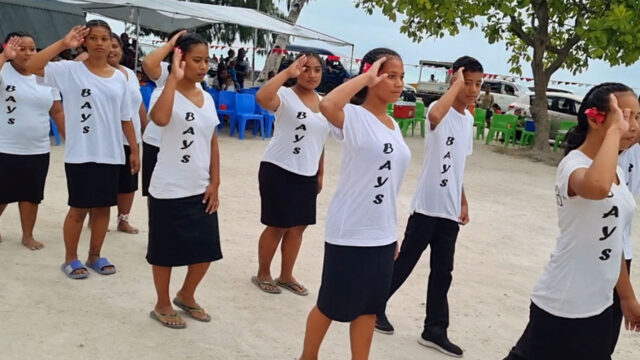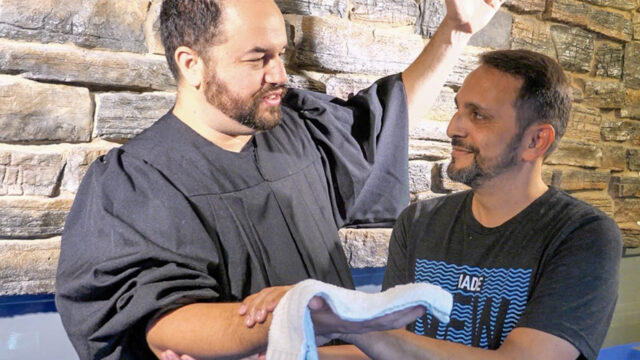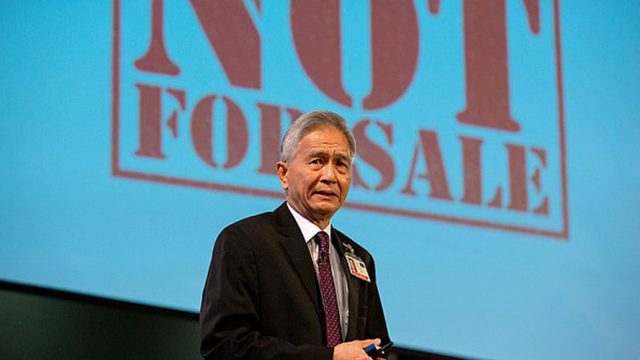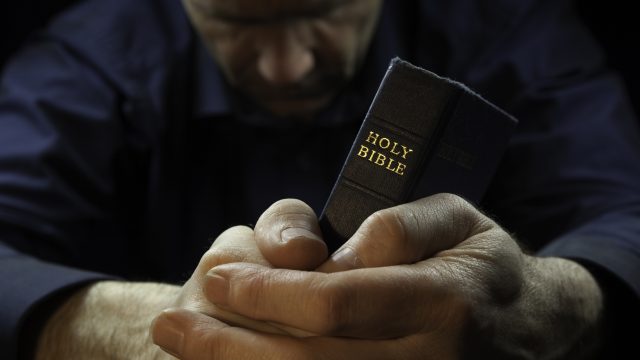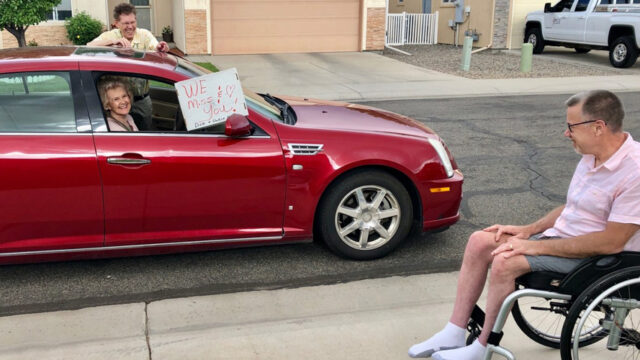Features from the September 2019 issue of Adventist World.

The following features appeared in the September 2019 issue of Adventist World. They’ve been combined here to accompany the Safe Church interview, which appeared in the same issue.
Abuse Defined
In general terms abuse happens anytime someone intentionally harms another in any way, often to gain control over the other for the personal gain of the abuser. Adults may encounter different forms of abuse, such as rape or sexual assault, as well as physical, psychological, verbal, financial, spiritual, and emotional abuse. Those most vulnerable—children and elderly individuals—are frequent targets of abuse, often by those closest to them (family members, caretakers, teachers/pastors/coaches).
Abuse is not limited to any cultural, educational, or economic level, or even religious affiliation. Religious figures are sometimes the most abusive, as they use their beliefs to oppress, harm, or kill those who disagree with them, even those who espouse similar beliefs. Abuse is not only directed by men against women—it also occurs in women against men, and by people of either gender toward those of the same gender.
Abuse is not about anger, addictions, stress, unfulfilled sexual desires, or any behavior of the victim; it is about control. Truly abusive situations exist when one party seeks to control the other and attempts to do so by force.
Claudio and Pamela Consuegra are director and associate director, respectively, of the Department of Family Ministries for the North American Division.
Observe and Report
In a perfect world those who take advantage of vulnerable individuals would not exist. Until then, our Seventh-day Adventist churches, schools, and institutions should be safe havens to all. Members and visitors should expect that they will be safe from the reaches of those who target weak persons.
Predators (who take advantage of those who are weak and/or elderly, and children) often find in churches or schools ideal places to search out their next victims. We often think of sexual predators who take advantage of children and vulnerable adults, but predators also prey on seniors in our congregations, especially as it relates to finances.
Churches and schools need to be like families, taking care of each other. The expression “if you see something, say something” is often heard in our societies. But before individuals are in a position to say something, they need to be educated, to be trained to observe, and to know what to look for. Leaders of local churches need to educate members to recognize symptoms of physical, financial, and sexual abuse. Training such as that required by the North American Division for all volunteers should be the goal of every organization.
The Seventh-day Adventist Church Manual states: “In order to safeguard our children, churches are encouraged to adopt policies that would provide a measure of safety and protection for children.”¹ Such policies should include, among other things, volunteer screening that requires “all volunteers [to] complete a volunteer information form, check their references, and, if required by law, do a police background check.”²
The Church Manual also states that churches should “provide regular training for teachers and volunteers to help them understand and protect children and how to nurture their faith.”³ Training is important so that individual members not only know what is required by law in their particular jurisdictions as far as reporting to authorities, but also understand what signs to look for.
If observation is made, how should church members handle what they have observed?
Rather than taking matters into their own hands and investigating on their own, they should first report to the pastor or head elder, who then should report all such incidents to the authorities. Members should be vigilant and observant, so that predators will recognize that opportunities for abuse do not exist in environments in which every member is vigilant.
There may be times individuals accused and convicted of such offenses ask to be admitted back into church membership. According to the Church Manual: “When dealing with perpetrators of sexual abuse, it should be remembered the restoration to membership does not remove all consequences of such a serious violation. While attendance at church activities may be permissible with properly established guidelines, a person convicted or disciplined for sexual abuse should not be placed in a role which could put them in contact with children, youth, and other vulnerable individuals. Neither shall they be given any position which would encourage vulnerable individuals to trust them implicitly.”⁴
Church members and leaders must protect the church and all who come within its doors.
At the same time, we have to be careful not to spread false rumors before accusations have been duly investigated by the authorities. Authorities must be allowed to do their work in an efficient and timely manner.
¹ Seventh-day Adventist Church Manual (Silver Spring, Md.: General Conference of Seventh-day Adventists, 2016), p. 175.
² Ibid.
³ Ibid.
⁴ Ibid., p. 67.
Karnik Doukmetzian is director of the Office of General Counsel for the General Conference.
What Can You Do?
In the face of something horrific, have a ready response.
When the unthinkable happens and someone you care about tells you they’ve suffered abuse, what do you do?
1. Ready yourself and your congregation to handle abuse, because it is all too common. Several ministries may be helpful in finding the right educational materials. See a list of resources in this issue.
2. Record everything. Write down the date, time, and content of all conversations you have with alleged victims and any others involved. Try to get as much information as possible before offering your opinion.
Work with the alleged victims to write a report of what they experienced. The report should include name, age, where they live, their occupation, when they first met the perpetrator, when the events took place, and what occurred. It should end with the statement: “I swear and affirm that this information is true and accurate to the best of my knowledge and ability” and their signature and the date.
3. Report to the appropriate authorities. Depending upon where you live, reporting any claim of child abuse may be mandated by law even if you can’t prove it really happened. While the Bible tells us not to engage in needless lawsuits against one another, it also tells us to “be subject to the governing authorities” (Rom. 13:1, NIV). Covering up crime will bring disrepute on the church.
If the abuse is not a criminal matter but still a moral issue—for example, a pastor in an inappropriate relationship with a church member—it should be reported to the appropriate level of church administration.
If a person has been abused, encouraging them to confront the abuser alone isn’t wise. It may be more appropriate for that confrontation to occur with another person present. In any case, we should be very careful not to retraumatize victims of abuse by sending them back to the person who violated them in the first place.
4. Refer both victim and perpetrator to appropriate counseling resources. Abidecounseling.com provides low-fee, biblically based, Adventist-affirming, Ellen White-informed counseling and coaching all over the world.
Jennifer Jill Schwirzer is an author, licensed counselor, musician, and speaker who lives in Orlando, Florida, United States.
If You Need Help
Silence is not the answer.
If you find yourself in the terrible situation of being a victim of abuse, you must get help. While we realize it is not easy to come forward and share your story, in order to heal and move forward you must seek assistance. The following resources come highly recommended, and it is our sincere hope that with prayer and proper support you will soon be on the road to recovery. Special thanks to Sarah McDugal and Jennifer Jill Schwirzer for supplying these resources.
This is a supporting initiative of the church and brings education, awareness, and victim support. It provides a confidential online reporting feature, and the team fully cooperates with church leaders and law enforcement to take action as needed.
WILD (Women in Leadership Development)
This organization provides confidential and free online support groups for women in recovery, training courses, and online group coaching. WILD also provides coaching services for abuse recovery, post-trauma wellness, and entrepreneurship development.
This is an initiative of the North American Division and the Adventist Development and Relief Agency (ADRA) to educate church leaders and raise awareness on multiple forms of abuse. The annual summit is streamed live. This year’s event is September 4-5, 2019.
This is an initiative to combat and provide education on all forms of abuse. It was launched in March on the campus of Andrews University.
This is a network of trained male and female Adventist counselors and coaches providing affordable emotional and mental health resources. Abide also offers regular support and helper training events for those who want to become equipped to serve others in this capacity.
Sarah is an author, speaker, and abuse recovery coach working exclusively with female survivors. She offers both group and individual online coaching and is available internationally.
Godly Response to Abuse in a Christian Environment (GRACE)
GRACE provides education, information, and support for victims.
This organization seeks to help churches and leaders recognize and respond to abuse in the church more effectively. It provides coaching, education, and support.
It serves victims of clergy sexual misconduct across denominations, through providing educational materials, events, and its online presence.



